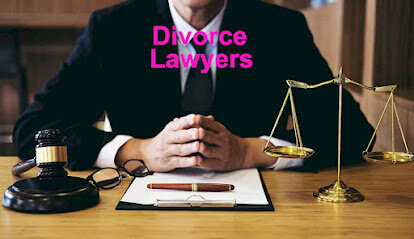Best Housing, Construction & Development Lawyers in New York
Share your needs with us, get contacted by law firms.
Free. Takes 2 min.
Free Guide to Hiring a Real Estate Lawyer
Or refine your search by selecting a city:
List of the best lawyers in New York, United States
About Housing, Construction & Development Law in New York, United States
Housing, Construction and Development law in New York consists of a complex framework of statutes, regulations and case law that oversee how properties are built, renovated, maintained, leased and sold. This area of law covers issues related to residential and commercial housing, construction projects, zoning, land use, tenant and landlord relationships, affordable housing initiatives and property development. In New York, especially in large urban areas like New York City, these laws are designed to protect the rights of property owners, tenants, developers and the public, while also ensuring safety, compliance and equitable access to housing.
Why You May Need a Lawyer
Legal help is often critical in housing, construction and development due to the high value of property, complex regulations and the possibility of disputes. Common situations where a lawyer is helpful include:
- Resolving landlord-tenant disputes, including evictions or rent disagreements
- Dealing with construction defects, delays or contract issues
- Navigating zoning law changes and land use permits
- Addressing fair housing rights and discrimination claims
- Negotiating and drafting real estate or construction contracts
- Filing or defending against mechanic’s liens
- Facilitating co-op or condo purchases and disputes
- Guiding affordable housing project developments
- Addressing violations issued by local housing agencies
A lawyer can interpret complicated regulations, represent your interests in negotiations, and advocate for you in court if needed.
Local Laws Overview
New York has distinct local laws and ordinances that significantly impact housing, construction and development activities.
- Multiple Dwelling Law and Housing Maintenance Code: Regulate safety, habitability and maintenance of residential buildings, with strict requirements for landlords.
- Rent Stabilization and Rent Control: Many apartments fall under these rules, limiting rent increases and giving tenants certain rights.
- Zoning Resolution: New York City and other municipalities have zoning laws that control land use, building heights, density and the approval process for new developments.
- Building Code and Construction Permits: Extensive codes govern new construction, renovations and safety standards. Permits and inspections are required for most construction work.
- Fair Housing Act and State Human Rights Law: Both prohibit housing discrimination based on protected characteristics.
- Condominium and Cooperative Laws: Special rules apply to the governance, sales and disputes in co-ops and condos.
- Mechanic’s Liens Law: Contractors and suppliers can file liens for unpaid work or materials on construction projects.
Navigating these laws and regulations often requires professional legal assistance, especially when disputes or regulatory compliance issues arise.
Frequently Asked Questions
What is rent stabilization and how does it affect tenants and landlords?
Rent stabilization is a set of laws that limit rent increases and protects tenants from arbitrary eviction in certain New York apartments. Landlords must follow guidelines for rent increases and lease renewals. Tenants benefit from greater security and predictability.
Does a landlord need a specific reason to evict a tenant in New York?
Landlords can only evict tenants for specific legal reasons, such as nonpayment of rent or violation of lease terms. A proper court process must be followed. In rent stabilized or controlled apartments, tenant protections are stronger.
What types of permits are required for construction or renovation in New York?
Most construction and major renovations require permits from the Department of Buildings. This includes electrical, plumbing, and structural modifications. Unpermitted work can result in fines or required removal.
How are land use and zoning regulated?
Local zoning laws dictate what types of buildings and activities are allowed in certain areas. Changing zoning status or seeking an exemption typically requires a legal process, notifications to the community and often public hearings.
What can a tenant do if their landlord does not make necessary repairs?
Tenants have the right to safe and habitable living conditions. If repairs are not made, tenants can report the problem to local housing agencies, such as HPD in NYC, and may initiate a “repair and deduct” or legal action in housing court.
What are mechanic’s liens and how do they affect property owners?
A mechanic’s lien is a legal claim against a property by contractors or suppliers who have not been paid for work or materials. The owner may need to resolve the lien before selling or refinancing the property.
Are there legal protections against housing discrimination in New York?
Yes. Both federal and state laws protect against discrimination based on race, color, religion, national origin, sex, disability, family status and other protected categories. Violations can be reported to agencies like the NYS Division of Human Rights.
What are the steps to develop new property or undertake major construction?
Property development involves purchasing land, seeking zoning and permit approvals, complying with environmental reviews, acquiring necessary financing and managing construction contracts. Each step involves legal review and documentation.
How can someone resolve a dispute with a builder or contractor?
Disputes over construction quality, delays or payments are common. You may start by reviewing your contract and attempting to negotiate. If that fails, consulting a lawyer and pursuing mediation, arbitration or litigation might be necessary.
Can tenants organize or join a tenants’ association in New York?
Yes, tenants are legally allowed to organize and form tenants’ associations. These groups can collectively negotiate with landlords or address common issues, and members are protected from retaliation.
Additional Resources
For those needing more information or assistance, the following organizations and government agencies are valuable resources:
- New York State Division of Housing and Community Renewal (DHCR) - Oversees rent regulation and housing programs
- New York City Department of Housing Preservation and Development (HPD) - Handles housing code enforcement and affordable housing
- New York City Department of Buildings (DOB) - Issues permits and oversees construction standards and safety
- New York State Division of Human Rights - Addresses housing discrimination complaints
- Legal Aid Society and Legal Services NYC - Offers legal assistance to low-income residents
- NYC Tenant Helpline - Provides information and help to tenants in New York City
- NYC Bar Association Legal Referral Service - Matches individuals with qualified attorneys
Next Steps
If you need legal assistance in the area of housing, construction or development in New York:
- Gather all relevant documents such as leases, contracts, notices or correspondence related to your issue
- Identify the specific legal problem or question you have
- Contact relevant city or state agencies if your issue involves code violations or regulatory compliance
- Seek out a qualified attorney with experience in New York housing, construction or development law for a consultation
- If you have limited income, explore legal aid organizations that may offer free or reduced-cost services
Taking early action and obtaining professional advice will help protect your rights and ensure your issue is resolved efficiently.
Lawzana helps you find the best lawyers and law firms in New York through a curated and pre-screened list of qualified legal professionals. Our platform offers rankings and detailed profiles of attorneys and law firms, allowing you to compare based on practice areas, including Housing, Construction & Development, experience, and client feedback.
Each profile includes a description of the firm's areas of practice, client reviews, team members and partners, year of establishment, spoken languages, office locations, contact information, social media presence, and any published articles or resources. Most firms on our platform speak English and are experienced in both local and international legal matters.
Get a quote from top-rated law firms in New York, United States — quickly, securely, and without unnecessary hassle.
Disclaimer:
The information provided on this page is for general informational purposes only and does not constitute legal advice. While we strive to ensure the accuracy and relevance of the content, legal information may change over time, and interpretations of the law can vary. You should always consult with a qualified legal professional for advice specific to your situation.
We disclaim all liability for actions taken or not taken based on the content of this page. If you believe any information is incorrect or outdated, please contact us, and we will review and update it where appropriate.
Browse housing, construction & development law firms by city in New York
Refine your search by selecting a city.
















